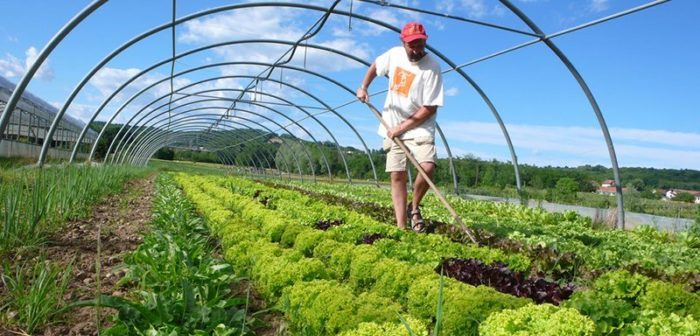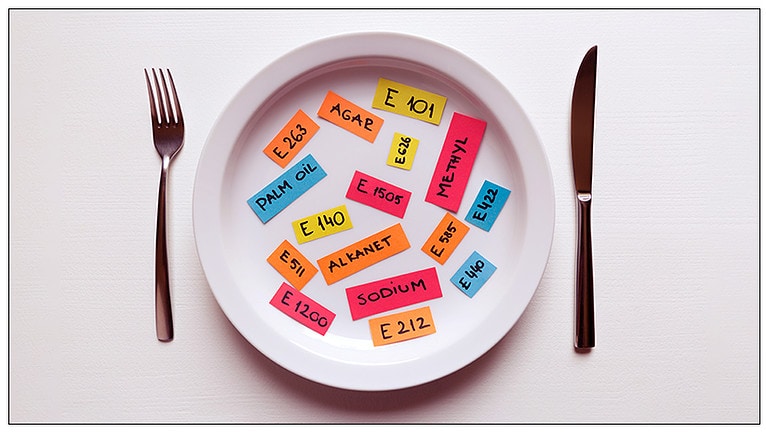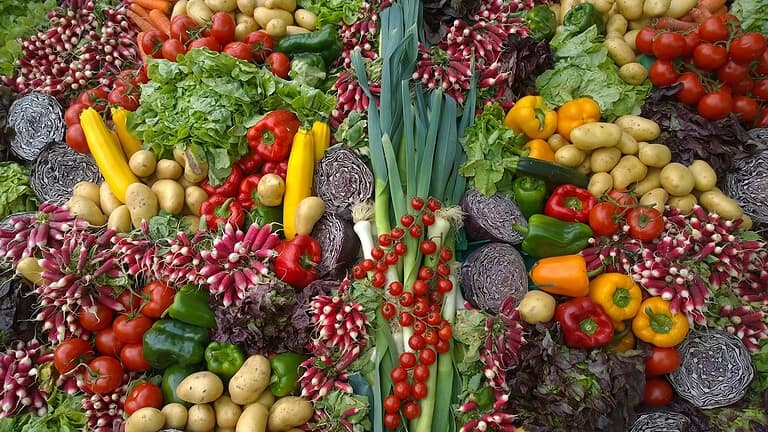The Truth About Organic Foods: Superior Health Benefits Are Myth Or Not?
As someone who is passionate about healthy eating and nutrition, I have often wondered whether organic foods are really better for me. With so many conflicting opinions and information out there, it can be difficult to separate fact from fiction. In this article, I aim to explore the truth about organic foods and whether they really are better for you.
Organic foods have become increasingly popular over the years, with many people believing that they are healthier and safer than conventionally grown produce. Proponents of organic foods argue that they are free from harmful pesticides and chemicals, and are therefore better for our health and the environment. However, skeptics argue that there is little scientific evidence to support these claims, and that organic foods are often more expensive and less accessible than conventionally grown produce.
So, what is the truth about organic foods? Are they really better for you? In the following paragraphs, I will delve deeper into the research and explore the pros and cons of organic foods, so that you can make an informed decision about whether to include them in your diet.

What are Organic Foods?
We all have heard about the benefits of organic foods. But what exactly are organic foods, and how are they different from non-organic foods?
Organic Farming Practices
Organic farming is a method of growing crops and raising animals that avoids the use of synthetic pesticides, fertilizers, and other chemicals. Instead, organic farmers rely on natural methods like crop rotation, composting, and beneficial insects to control pests and maintain soil health.
Organic farming also prohibits the use of genetically modified organisms (GMOs) and requires that animals have to be raised in humane conditions, with access to the outdoors and without the use of antibiotics or growth hormones.
Benefits of Organic Foods
One of the main reasons people choose organic foods is because they believe they are healthier and safer than non-organic foods. While there is some debate over the scientific evidence for these claims, there are several potential benefits to eating organic foods:
- Pesticide reduction: Organic foods are grown without synthetic pesticides, which can reduce your exposure to potentially harmful chemicals.
- Nutrient content: Some studies have suggested that organic foods may contain higher levels of certain nutrients, like vitamin C and antioxidants, because of the higher percentage of dry matter.
- Environmental impact: Organic farming practices are generally considered to be more sustainable and environmentally friendly than conventional farming methods.
It’s important to note that not all organic foods are created equal. Some organic foods may still contain small amounts of pesticides or other contaminants, and some non-organic foods may be just as nutritious and safe as their organic counterparts.
Overall, while there are some potential benefits to eating organic foods, it’s important to consider the cost and availability of these foods, as well as the potential risks and benefits of both organic and non-organic options.
Nutritional Value of Organic Foods
As a food scientist, I have often wondered whether organic foods are really better for me than conventional foods. One of the key arguments in favor of organic foods is that they are more nutritious than conventionally grown foods. In this section, I will explore the nutritional value of organic foods and whether they really are better for you.
Comparison with Conventional Foods
When it comes to comparing the nutritional value of organic and conventional foods, there is no clear consensus. Some studies have found that organic foods are higher in certain nutrients, while others have found no significant differences. One thing that is clear, however, is that the nutritional value of any food depends on a variety of factors, including soil quality, climate, and growing conditions.
One area where organic foods may have an edge over conventional foods is in their antioxidant content. Antioxidants are compounds that protect our cells from damage caused by free radicals, which can contribute to aging and disease. Some studies have found that organic foods are higher in antioxidants than conventionally grown foods, although the evidence is not conclusive.
Research Studies
Numerous studies have been conducted to compare the nutritional value of organic and conventional foods. One meta-analysis of 343 studies found that organic foods had higher levels of certain nutrients, including vitamin C, iron, and magnesium, although the differences were small. Another study found that organic milk had higher levels of omega-3 fatty acids than conventional milk.
However, not all studies have found significant differences in the nutritional value of organic and conventional foods. One review of 55 studies found that there were no significant differences in the vitamin and mineral content of organic and conventional crops. Another study found that the nutritional value of organic and conventional foods was similar, but that organic foods had lower levels of pesticide residues.
Overall, the evidence on the nutritional value of organic foods is mixed. While some studies have found that organic foods are higher in certain nutrients, others have found no significant differences. It is important to keep in mind that the nutritional value of any food depends on a variety of factors, and that choosing organic foods is just one part of a healthy diet.
Environmental Impact of Organic Farming
As someone who is concerned about the environment, I have always been curious about the environmental impact of organic farming. After conducting some research, I have found that organic farming is indeed better for the environment compared to conventional farming.

Reduced Chemical Usage
One of the biggest advantages of organic farming is the reduced use of chemicals. Organic farmers use natural methods to control pests and diseases, such as crop rotation, beneficial insects, and natural pesticides. This reduces the amount of toxic chemicals that are released into the environment, which can harm wildlife and pollute water sources.
Soil Health
Organic farming also promotes soil health. Organic farmers use natural fertilizers, such as compost and manure, to improve soil health and fertility. This helps to maintain healthy soil, which is essential for growing healthy crops. Healthy soil also helps to reduce erosion, which can lead to soil degradation and loss of nutrients.
Biodiversity
Organic farming also promotes biodiversity. Organic farmers plant a wide variety of crops and use crop rotation to maintain soil health. This promotes the growth of beneficial insects and wildlife, which helps to maintain a healthy ecosystem. Biodiversity also helps to reduce the risk of crop failure due to pests and diseases.
In conclusion, organic farming has a positive impact on the environment. It reduces chemical usage, promotes soil health, and encourages biodiversity. As a consumer, choosing organic food products can help to support sustainable farming practices and reduce the negative impact of conventional farming on the environment.
Controversies Surrounding Organic Foods
Organic foods have been a subject of controversy for years, with opinions divided on whether they are better for you or not. While some argue that organic foods are healthier, safer, and more environmentally friendly, others say that they are not worth the extra cost. In this section, I will discuss some of the controversies surrounding organic foods.
Cost and Accessibility
One of the main controversies surrounding organic foods is their cost. Organic foods are often more expensive than conventionally grown foods, which can make them inaccessible to some people. As someone who is on a tight budget, I understand the struggle of trying to afford organic foods. While I believe that organic foods are better for you, I also understand that not everyone can afford them.
Another issue with organic foods is accessibility. Many people who live in rural areas or food deserts may not have access to organic foods. This can make it difficult for them to make healthier choices, even if they want to. While some grocery stores are starting to carry more organic options, there is still a long way to go in terms of making organic foods accessible to everyone.
Labeling and Certification
Another controversy surrounding organic foods is labeling and certification. While the USDA has strict guidelines for what can be labeled as organic, there have been cases of fraud and mislabeling in the organic industry. This can make it difficult for consumers to know what they are actually buying.
Additionally, some people argue that the USDA’s organic certification process is not strict enough. For example, some organic farms still use pesticides and other chemicals, which can be harmful to the environment and to consumers. While the USDA does have guidelines for what can be used on organic farms, some argue that these guidelines are not strict enough.
In conclusion, while there are controversies surrounding organic foods, I believe that they are still a better option than conventionally grown foods. However, I also understand that not everyone can afford or access organic foods, and that there are issues with labeling and certification in the industry. Ultimately, it is up to each individual to decide what is best for them and their budget.
Conclusion
After researching and analyzing the available information on organic foods, I have come to the conclusion that they do have some benefits compared to conventionally grown foods. However, it is important to note that these benefits may not be significant enough to justify the higher cost of organic foods.
Organic foods are grown without the use of synthetic fertilizers and pesticides, which can be harmful to both the environment and human health. They also tend to have higher levels of certain nutrients, such as antioxidants and omega-3 fatty acids.
On the other hand, there is no evidence to suggest that organic foods are significantly more nutritious or safer than conventionally grown foods. In fact, some studies have found that there is little difference in nutrient levels between organic and non-organic foods.
Additionally, organic foods are often more expensive than conventionally grown foods, which can make them less accessible to lower-income individuals and families. It is also worth noting that just because a food is labeled as “organic” does not necessarily mean it is healthier or more nutritious than non-organic options.
Overall, while organic foods may have some benefits, they are not a magic solution to better health. It is important to prioritize healthy eating habits and a balanced and varied diet, regardless of whether or not the food is labeled as organic.







